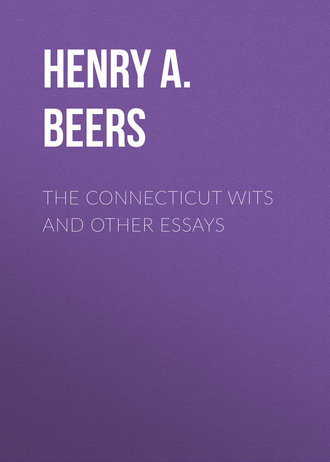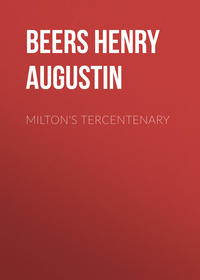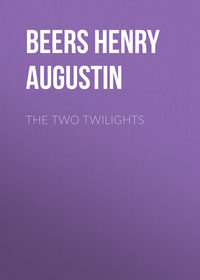 полная версия
полная версияThe Connecticut Wits and Other Essays
or Marston’s
Night, like a masque, has entered heaven’s high hall,With thousand torches ushering the way.or Beaumont’s
Cover her face: mine eyes dazzle: she died young.But when all has been said, and in spite of enthusiasts like Lamb and Hazlitt and Swinburne, I fear it must be acknowledged that, outside of Shakespeare, our old dramatists produced no plays of the absolutely first rank; no tragedies so perfect as those of Sophocles and Euripides; no comedies equal to Molière’s. Nay, I would go further, and affirm that not only has the Elizabethan drama – excluding Shakespeare – nothing to set against the first part of Goethe’s “Faust,” but that its best plays are inferior, as a whole, to the best of Aristophanes, of Calderon, of Racine, of Schiller, even perhaps of Victor Hugo, Sheridan and Beaumarchais. It is as Coleridge said: great beauties, counterbalanced by great faults. Ben Jonson is heavy-handed and laborious; Beaumont and Fletcher graceful, fluent and artistic, but superficial and often false in characterization; Webster, intense and powerful in passion, but morbid and unnatural; Middleton, frightfully uneven; Marlowe and Chapman high epic poets but with no flexibility and no real turn for drama.
Yet unsatisfactory as it is, when judged by any single play, the work of the Elizabethans, when viewed as a whole, makes an astonishing impression of fertility, of force, of range, variety, and richness, both in invention and in expression.
1
Journals of Ralph Waldo Emerson, 1820–76. Edited by E. W. Emerson and Waldo E. Forbes. Houghton Mifflin Company, Boston, 1909–14.
2
Ralph Waldo Emerson. By O. W. Firkins. Houghton Mifflin Company, 1915.
3
Unquestionably Lady Jane pronounced it wīnds.
4
This article was printed in the North American Review in two instalments, in May, 1905, and July, 1907. The growth of the literary drama in the last fifteen years has been so marked, and plays of such high quality have been put upon the stage by new writers like Barrie, Synge, Masefield, Kennedy, Moody, Sheldon, and others, that these prophecies and reflections may seem out of date. The article is retained, notwithstanding, for whatever there may be in it that is true of drama in general.
5
An earlier version, entitled “The Guardian,” had been acted in 1641
6
An Anabaptist preacher. See Carlyle’s “Cromwell’s Letters and Speeches,” iv. 3.
7
Mr. Charles Francis Adams informs me that a letter of inquiry sent by him to the Evening Post has brought out three or four references to Milton in the “Magnalia,” besides other allusions to him in the publications of the period. Mr. Adams adds, however, that there is nothing to show that “Paradise Lost” was much read in New England prior to 1750. The “Magnalia” was published in 1702.
8
“Every Man in his Humor” lasted well down into the nineteenth century on the stage. And here are a few haphazard dates of late performances of Elizabethan plays: “The Pilgrim,” 1812; “Philaster,” 1817; “The Chances,” 1820; “The Wild Goose Chase,” 1820; “The City Madam,” 1822; “The Humorous Lieutenant,” 1817; “The Spanish Curate,” 1840.



